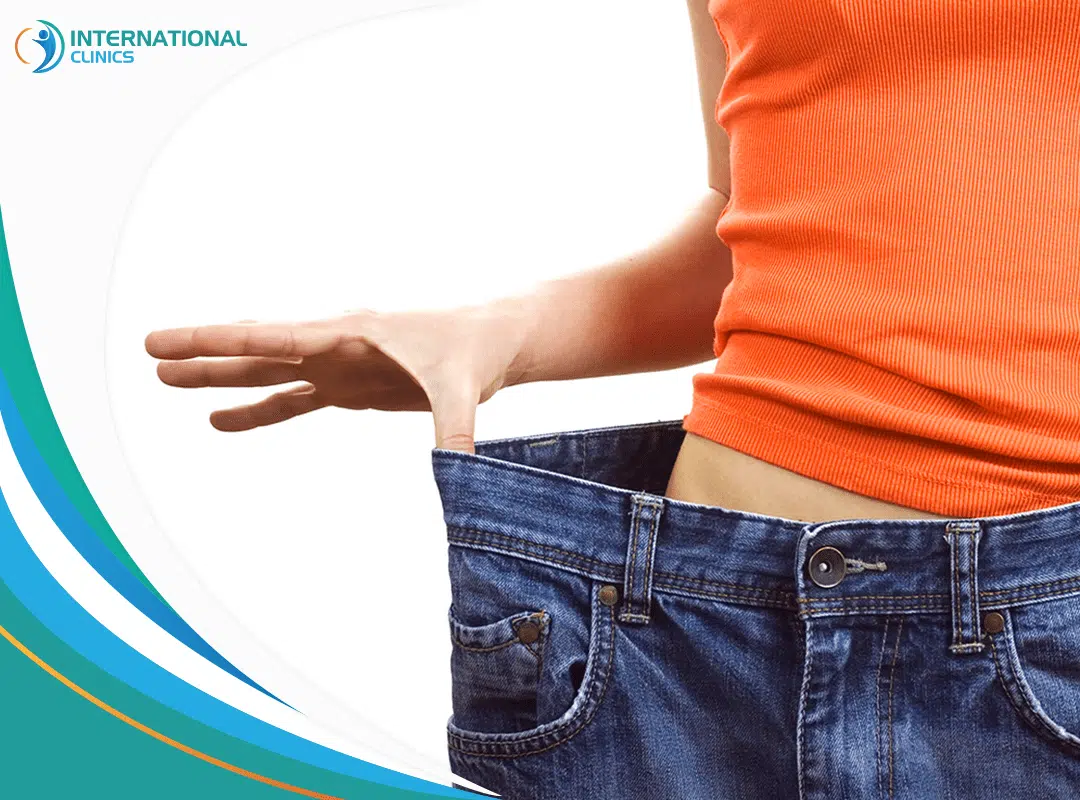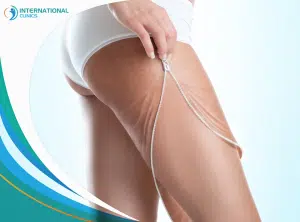Gastric sleeve surgery is a surgical procedure, also known as sleeve gastrectomy surgery, specifically designed for individuals battling obesity.
It involves reducing the size of your stomach to restrict food intake and promote weight loss. But how is gastric sleeve surgery done?
If you’re ready to take control of your weight and transform your life for the better, gastric sleeve in Turkey may be just what you need. So let’s say goodbye to fad diets and hello to long-lasting results!
Benefits and Risks of Gastric Sleeve Surgery
Achieving Significant Weight Loss
- Gastric sleeve surgery is a highly effective procedure for achieving significant weight loss. Many individuals who undergo gastric sleeve surgery experience remarkable results in terms of shedding excess pounds. In fact, studies have shown that patients lose around 60-70% of their excess body weight within the first year after surgery. This substantial weight loss not only improves physical appearance but also has numerous health benefits.
Improvement in Obesity-related Health Conditions
- One of the key advantages of gastric sleeve surgery is its ability to improve obesity-related health conditions. Research has indicated that many individuals with type 2 diabetes who undergo gastric sleeve surgery experience significant improvements in their blood sugar levels. Some even achieve complete remission from diabetes, eliminating the need for medication altogether. Similarly, high blood pressure tends to decrease following weight loss, reducing the risk of heart disease and stroke.
Appetite Reduction and Increased Satiety
- Another benefit associated with gastric sleeve surgery is its impact on appetite regulation. The procedure removes a portion of the stomach responsible for producing ghrelin, a hormone that stimulates hunger. Gastric sleeve surgery in Turkey promotes feelings of satiety or fullness after consuming small amounts of food. This combination helps patients adhere to healthier eating habits by preventing overeating and promoting portion control.
Potential Risks of Gastric Sleeve Surgery
- Gastric sleeve surgery offers numerous benefits, However Like any surgical intervention, there are certain side effects and complications that can arise. It is important for patients considering gastric sleeve surgery to discuss these risks thoroughly with their healthcare provider and understand the potential consequences.
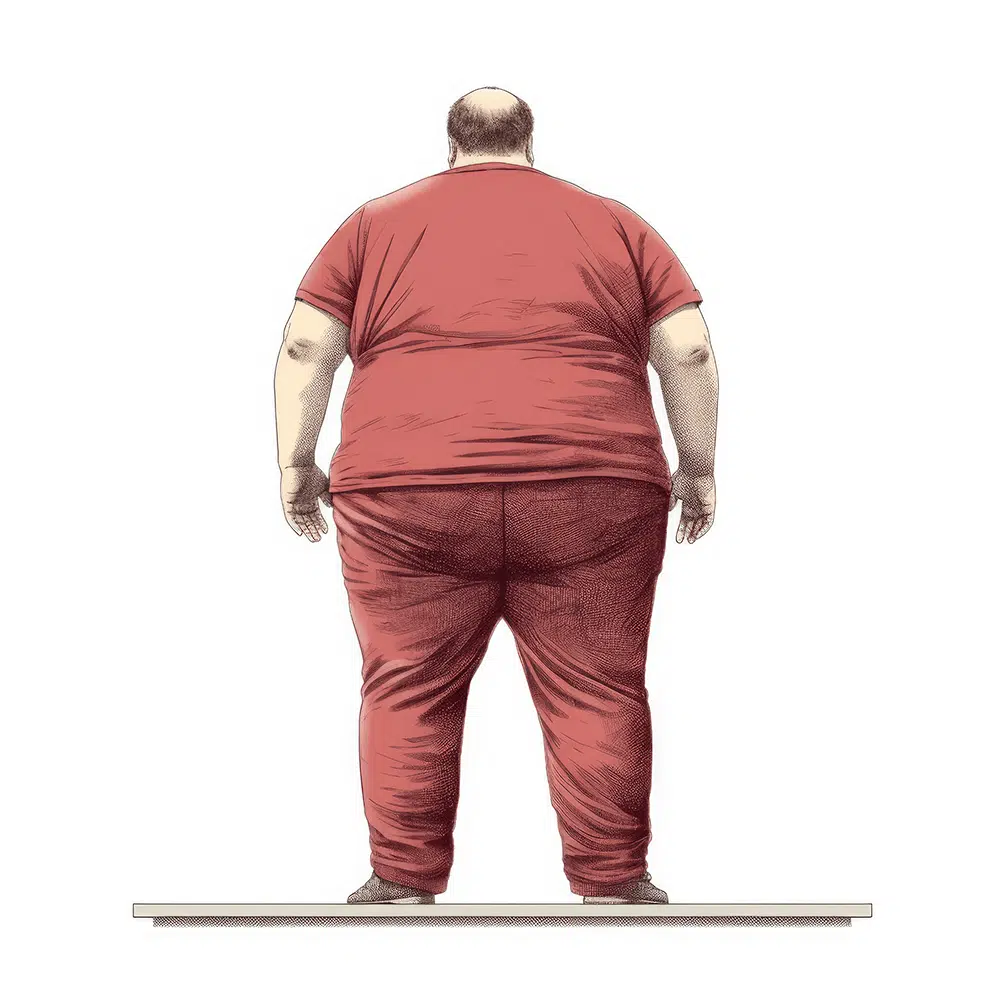
Get a Free Consultation Right Now!
How Is Gastric Sleeve Surgery Done?
Let’s take a closer look at how gastric sleeve surgery is done.
Performed laparoscopically using small incisions
Gastric sleeve surgery is typically performed using a minimally invasive technique called laparoscopy. This approach offers several advantages over traditional open surgery, including smaller incisions, reduced scarring, less pain, and faster recovery times.
During the procedure, your surgeon will make several small incisions in your abdomen. Through these tiny openings, they will insert specialized surgical instruments and a camera called a laparoscope.
The camera provides real-time images of the surgical site on a monitor in the operating room, allowing the surgeon to navigate and perform the procedure accurately.
Majority of the stomach is removed, leaving a smaller sleeve-shaped pouch
Once access to the abdominal cavity has been established through the small incisions, your surgeon will begin by carefully dissecting around 75-80% of your stomach. This portion of the stomach is then permanently removed from your body.
The remaining section of your stomach is reshaped into a long tube or “sleeve.” This newly created gastric sleeve has significantly reduced capacity compared to your original stomach.
By reducing its size and removing certain hunger-regulating hormones produced by this part of the stomach, gastric sleeve surgery helps control appetite and promotes weight loss.
No rerouting or bypassing of intestines involved
Unlike some other weight loss surgeries such as gastric bypass or duodenal switch procedures, gastric sleeve surgery does not involve rerouting or bypassing any part of the intestines.
Instead, it focuses solely on reducing stomach size to restrict food intake and encourage healthier eating habits.
By avoiding intestinal rerouting, gastric sleeve surgery minimizes the risk of complications associated with malabsorption of nutrients. This means that your body will still be able to absorb essential vitamins, minerals, and calories from the food you consume, albeit in smaller quantities.
Surgery usually takes around one to two hours
The duration of gastric sleeve surgery typically ranges from one to two hours. However, it’s important to note that this timeframe may vary depending on individual factors such as the complexity of the procedure and any additional surgical considerations.
After the surgery is complete, you will be taken to a recovery area where medical professionals will closely monitor your vital signs and ensure that you are comfortable. Most patients are able to return home within a day or two following their surgery, although individual recovery times may vary.
Anesthesia
Anesthesia is a critical aspect of gastric sleeve surgery, ensuring the patient’s comfort and safety during the procedure. Here’s a brief explanation of anesthesia in the context of gastric sleeve surgery:
- Administration:
- Before the surgery begins, the patient is administered general anesthesia, which induces a state of unconsciousness and painlessness. General anesthesia ensures that the patient is completely asleep and unaware of the surgical process.
- Anesthesiologist’s Role:
- An experienced anesthesiologist or certified nurse anesthetist is responsible for administering the anesthesia and monitoring the patient’s vital signs throughout the surgery. They carefully adjust the anesthesia dosage to keep the patient stable and safe during the procedure.
- Benefits:
- General anesthesia allows the surgical team to perform the gastric sleeve surgery efficiently without the patient experiencing any pain or discomfort. It also enables the patient to remain completely still, ensuring the surgical site is accessible and reducing the risk of complications.
- Risks:
- While general anesthesia is generally safe, it does carry some inherent risks, such as adverse reactions, allergic responses, or complications related to pre-existing medical conditions. However, modern anesthesia practices and monitoring have significantly reduced the occurrence of anesthesia-related issues.
- Recovery:
- After the surgery is completed, the anesthesia is gradually discontinued, allowing the patient to wake up in the recovery room. The medical team continues to monitor the patient during the postoperative period until they are fully conscious and stable.
- Preoperative Evaluation:
- Before the surgery, the patient undergoes a thorough preoperative evaluation, including a review of their medical history and physical examination. This evaluation helps identify any potential risks or contraindications to anesthesia.
- Communication:
- It is crucial for patients to communicate openly with their anesthesia team about any allergies, past experiences with anesthesia, or concerns they may have. This ensures that the anesthesia plan is tailored to the individual’s needs and minimizes any potential risks.
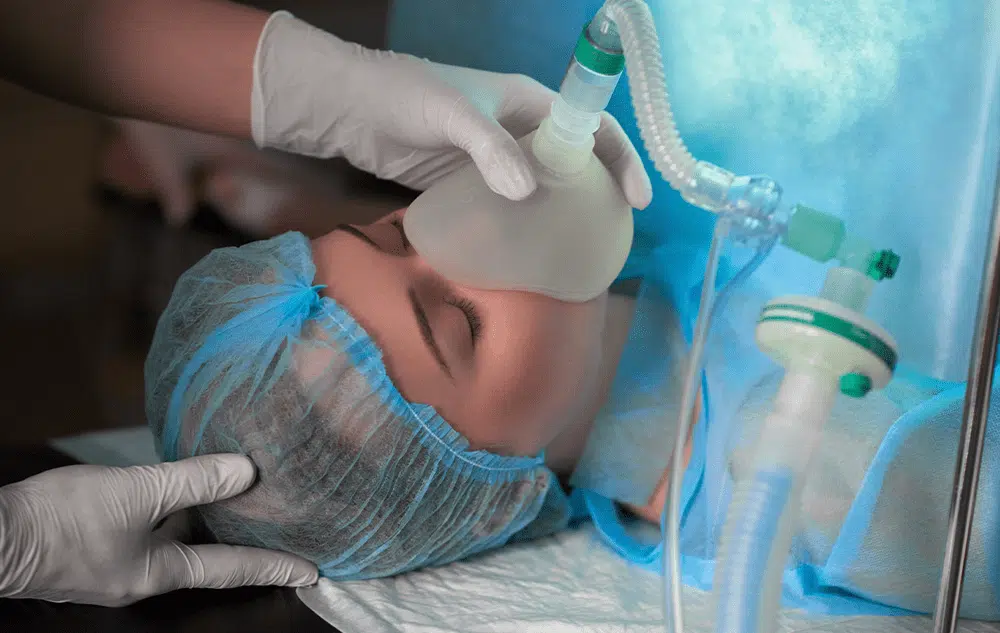
Recovery Process after Gastric Sleeve Surgery
Hospital Stay: One to Three Days
After undergoing gastric sleeve surgery, patients can expect to stay in the hospital for a period of one to three days.
This allows medical professionals to closely monitor their condition and ensure that they are recovering well. During this time, patients will be kept in a specialized recovery room where they can rest and receive the necessary care.
Gradual Transition from Liquid to Solid Diet
Following gastric sleeve surgery, patients must adhere to a specific dietary plan as part of their recovery process.
This helps the stomach heal and adjust to its reduced size. It is crucial for patients to follow these dietary guidelines strictly in order to facilitate proper healing and maximize the benefits of the surgery.
Regular Follow-up Appointments with Healthcare Providers
To ensure successful recovery and long-term weight loss results, regular follow-up appointments with healthcare providers are essential after gastric sleeve surgery.
During these appointments, doctors may assess weight loss progress, evaluate nutritional status, discuss any challenges faced by the patient during their recovery journey, and make necessary adjustments in terms of medication or diet plans.
Gradual Increase in Physical Activity
Physical activity plays an integral role in post-surgery gastric sleeve recovery. However, it is important for patients not to overexert themselves immediately following the procedure. Instead, physical activity should be gradually increased as the healing progresses.
Initially, patients are encouraged to engage in light activities such as short walks or gentle stretching. As they regain strength and stamina, they can gradually incorporate more moderate exercises into their routine. This could include activities like swimming, cycling, or low-impact aerobics.
Use of Nutritional Supplements
Gastric sleeve surgery brings about changes not only in your eating habits but also in the way your body absorbs nutrients.
Due to the reduced stomach size, it may be challenging to obtain all the essential vitamins and minerals solely through regular food intake. Therefore, your healthcare provider recommend nutritional supplements to meet your dietary needs.
These supplements often include a combination of vitamins and minerals such as iron, calcium, vitamin D, vitamin B12, and folic acid. It is crucial to follow your healthcare provider’s instructions regarding supplement dosage and timing for optimal absorption and overall well-being.
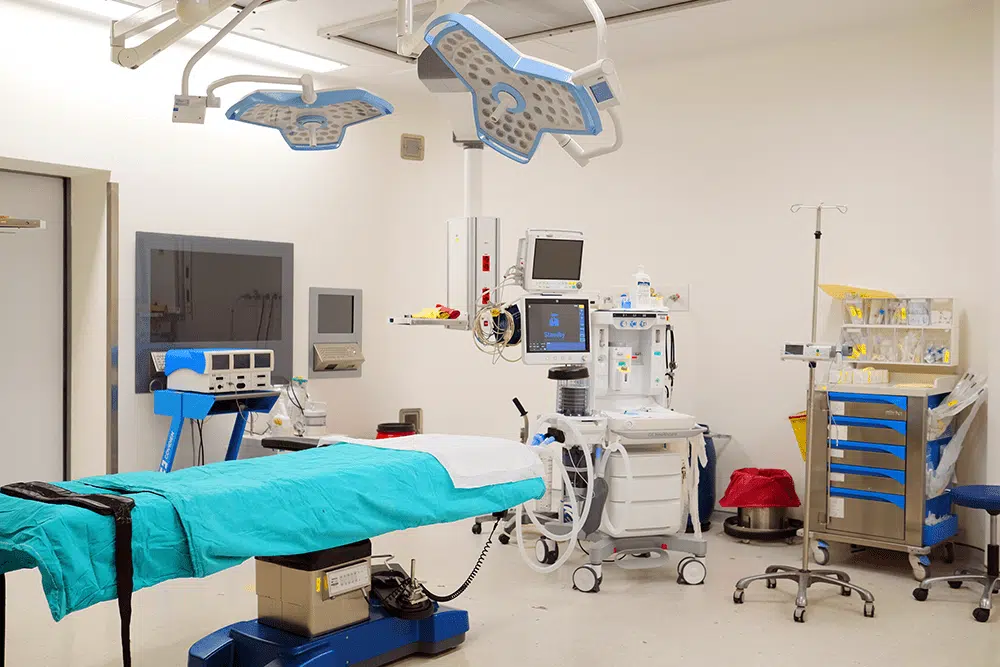
Post-Surgery Diet Changes
Here’s a table summarizing the post-surgery diet changes typically recommended after gastric sleeve surgery:
| Post-Surgery Diet Phases | Duration | Description |
|---|---|---|
| Clear Liquid Diet | 1-2 days (hospital) | Consists of clear liquids like water, broth, sugar-free gelatin, and sugar-free clear fruit juices. |
| Full Liquid Diet | 1-2 weeks | Includes clear liquids and adds low-fat milk, protein shakes, pureed soups, and strained yogurt. |
| Pureed Diet | 2-4 weeks | Introduces pureed foods like mashed vegetables, soft fruits, and smooth, protein-rich foods. |
| Soft Diet | 2-4 weeks | Gradually adds soft, tender foods like well-cooked vegetables, lean meats, and soft fruits. |
| Regular Diet | 1-2 months and beyond | Slowly reintroduce regular, healthy foods, following portion control and balanced nutrition. |
| Vitamin and Mineral Supplements | Lifelong | Patients need to take prescribed supplements to prevent nutrient deficiencies long-term. |
One key aspect of adapting to a new lifestyle after gastric sleeve surgery is adopting a habit of eating small portions frequently throughout the day. Try to chew foods thoroughly and eat slowly in order to prevent any discomfort or digestive issues.
Expected Outcomes of Gastric Sleeve Surgery
- Significant Weight Loss: Patients can expect to lose around 50-70% of their excess body weight within the first year after surgery.
- Improvement in Health Conditions: Gastric sleeve surgery often leads to improvements in obesity-related conditions like type 2 diabetes, high blood pressure, and sleep apnea.
- Increased Mobility: With excess weight gone, patients experience increased mobility and find it easier to engage in physical activities.
- Enhanced Self-esteem: Weight loss can positively impact self-esteem and body image, leading to improved mental health and well-being.
- Long-term Weight Management: Gastric sleeve surgery helps establish healthier eating habits and reduces appetite, aiding in long-term weight management.
- Lower Risk of Complications: Successful weight loss reduces the risk of developing obesity-related complications like heart disease and stroke.
- Resolution of Co-morbidities: Many patients experience resolution or significant improvement in obesity-related co-morbidities like type 2 diabetes and sleep apnea.
- Ongoing Support: Regular follow-up visits and ongoing support are vital for maintaining positive outcomes and achieving long-term success.

Medical Conditions Treated by Gastric Sleeve Surgery
Type 2 Diabetes: A New Lease on Life
Type 2 diabetes is a health condition that affects millions of people worldwide. The good news is that gastric sleeve surgery can often bring about significant improvements or even complete resolution of this condition.
By reducing the size of the stomach, this procedure restricts the amount of food you can consume and alters your body’s hormonal balance in a way that promotes better blood sugar control.
After undergoing gastric sleeve surgery, many patients experience a remarkable transformation in their diabetes management. They may find themselves relying less on medications or insulin injections as their blood sugar levels stabilize.
This newfound freedom from constant monitoring and medication can be life-changing, allowing individuals to regain control over their health and live more fulfilling lives.
High Blood Pressure: Lightening the Load
High blood pressure, also known as hypertension, is a common health problem that often goes hand in hand with obesity.
Excess weight places extra strain on the cardiovascular system, making it harder for your heart to pump blood effectively. However, gastric sleeve surgery offers hope for those struggling with this condition.
By shedding excess pounds through weight loss after surgery, many patients find that their high blood pressure becomes more manageable.
As they slim down and adopt healthier lifestyle habits, such as regular exercise and a balanced diet, their blood pressure readings often improve significantly. This reduction in blood pressure not only reduces the risk of heart disease but also enhances overall well-being and quality of life.
Sleep Apnea: Restful Nights Ahead
Sleep apnea is a sleep disorder characterized by pauses in breathing during sleep. It can lead to daytime fatigue, difficulty concentrating, and even serious health complications if left untreated. Fortunately, gastric sleeve surgery has been shown to alleviate symptoms associated with sleep apnea.
As weight is lost following gastric sleeve surgery, excess fat deposits around the neck and throat diminish. This helps to open up the airways, reducing the occurrence of breathing interruptions during sleep.
Many patients report a significant decrease in snoring and improved sleep quality after surgery. With better rest at night, individuals can wake up feeling refreshed and ready to take on the day.
Joint Pain and Mobility: Lightening the Load on Your Joints
Carrying excess weight puts undue stress on your joints, leading to joint pain and mobility issues. Everyday activities that were once simple may become challenging and uncomfortable.
However, gastric sleeve surgery can provide relief by reducing the pressure on your joints.
As you shed pounds following surgery, the load on your joints decreases significantly. This reduction in weight can alleviate joint pain, improve mobility, and enhance overall physical function.
Engaging in activities that were previously off-limits due to joint discomfort becomes possible once again. By lightening the load on your joints through gastric sleeve surgery, you can regain your freedom of movement and enjoy a more active lifestyle.
Speak with Board-Certified Surgeons!
When Weight Loss Surgery Doesn’t Work: Exploring Alternatives
Gastric Sleeve Surgery Alone May Not Always Deliver Desired Weight Loss Results
For some individuals struggling with excess weight, gastric sleeve surgery may not provide the desired weight loss outcomes.
While this procedure has proven effective for many patients, there are cases where additional measures need to be considered. It is important to understand that each person’s weight loss journey is unique, and what works for one may not work for another.
Revising the Procedure or Considering Other Bariatric Surgeries as Viable Options
When gastric sleeve surgery fails to deliver the expected results, revising the procedure or exploring alternative bariatric surgeries can be viable options. These alternatives aim to address specific challenges faced by individuals who have not achieved their desired weight loss goals through gastric sleeve surgery alone.
One option is a revision of the initial procedure. This could involve modifying the size of the stomach pouch or adjusting its connection to the intestines. By making these revisions, surgeons can help patients overcome any barriers preventing them from losing excess weight effectively.
Another alternative worth considering is other types of bariatric surgeries. Procedures such as gastric bypass or duodenal switch offer different mechanisms for achieving weight loss. These surgeries alter both the size and function of the digestive system, leading to significant reductions in food intake and absorption.

Emphasizing Lifestyle Modifications: Diet and Exercise as Key Factors
While surgical interventions play a crucial role in addressing obesity, lifestyle modifications should never be overlooked.
Even if gastric sleeve surgery hasn’t delivered satisfactory results on its own, incorporating healthy habits into daily life can make a substantial difference.
Dietary changes are paramount in managing weight effectively. Adopting a balanced and nutritious eating plan, tailored to an individual’s needs, can help shed those extra pounds. Reducing calorie intake, incorporating more fruits and vegetables, and limiting processed foods are all steps in the right direction.
Regular physical activity is equally important. Engaging in exercises that suit one’s abilities and preferences can contribute significantly to weight loss efforts. Whether it’s brisk walking, swimming, or dancing, finding enjoyable ways to stay active will not only aid in shedding pounds but also improve overall health and well-being.
The Importance of a Multidisciplinary Approach Involving Healthcare Professionals
When weight loss surgery alone doesn’t yield the desired outcomes, adopting a multidisciplinary approach becomes crucial even of this coulkd increase obesity surgery cost in Turkey .
This involves collaborating with various healthcare professionals who specialize in obesity management to provide comprehensive care.
A team of experts may include bariatric surgeons, dietitians or nutritionists, psychologists or therapists specializing in behavior change, and fitness trainers.
Each professional brings unique skills and knowledge to address different aspects of weight loss challenges comprehensively.
By working together as a team, these healthcare professionals can tailor treatment plans that consider an individual’s physical health, mental well-being, dietary requirements, exercise capabilities, and lifestyle factors. This holistic approach maximizes the chances of achieving sustainable weight loss success.
Conclusion
Throughout this article, we have explored various aspects of gastric sleeve surgery, including its benefits and risks, expected outcomes, the recovery process, anesthesia, and incision methods, post-surgery diet changes, and medical conditions treated by this procedure.
By summarizing these key points, it becomes evident that obesity surgery in Turkey can be a life-changing solution for individuals struggling with obesity.
Though the procedure carries certain risks, consulting with experienced healthcare professionals and understanding the potential benefits can lead to well-informed decisions.
Gastric sleeve surgery has opened doors to new possibilities for those seeking lasting weight loss solutions. However, it is equally essential to embrace healthy habits, including regular exercise and follow-up care, to optimize the outcomes and pave the way for a healthier future.

FAQs
The recovery time after gastric sleeve surgery varies from person to person but typically ranges from 2-4 weeks. It is important to follow your surgeon’s guidelines regarding diet and physical activity during this period.
While gastric sleeve surgery can provide substantial weight loss results, it is possible to regain some weight if dietary and lifestyle modifications are not maintained. Adhering to post-surgery guidelines and adopting healthy habits will help prevent weight regain.
The actual surgical procedure typically takes around 1-2 hours, depending on individual factors such as anatomy and surgeon experience. Preoperative preparation and postoperative recovery time should also be considered when planning for the overall duration of the process.
Pregnancy after gastric sleeve surgery is generally safe. However, it is important to wait until weight loss stabilizes and nutritional status improves before attempting pregnancy. Consultation with a healthcare provider specializing in bariatric care is essential for personalized guidance.
Yes, vitamin and mineral supplementation is typically necessary after gastric sleeve surgery. The procedure can affect nutrient absorption, and your healthcare provider will prescribe appropriate supplements to ensure optimal health.
Alcohol consumption should be approached with caution after gastric sleeve surgery. The reduced stomach size can affect alcohol tolerance levels and increase the risk of complications. It is advisable to consult with your healthcare provider regarding alcohol consumption guidelines.
Depending on individual factors such as age, genetics, and the amount of weight lost, some patients may choose to undergo plastic surgery procedures like body contouring or skin removal surgeries to address excess skin. Consultation with a plastic surgeon can provide personalized recommendations.
Read more: Gastric sleeve cost in Turkey
